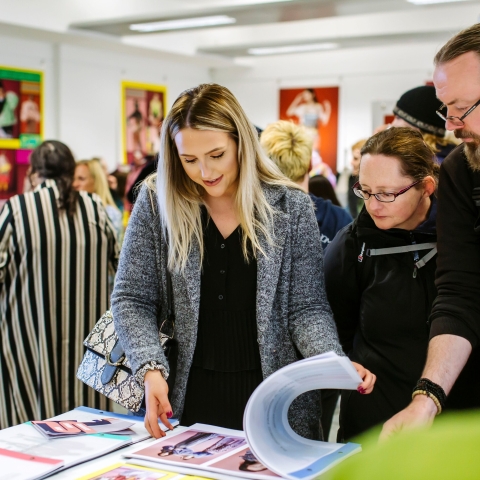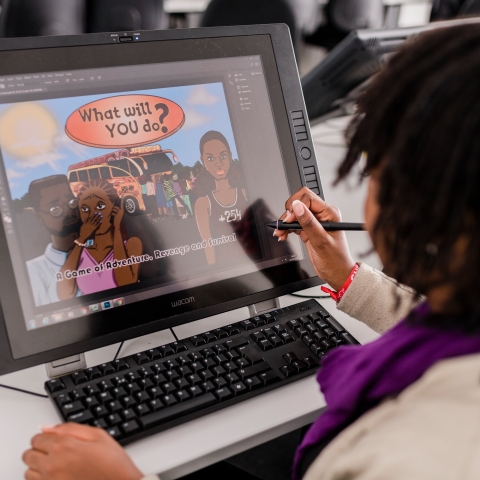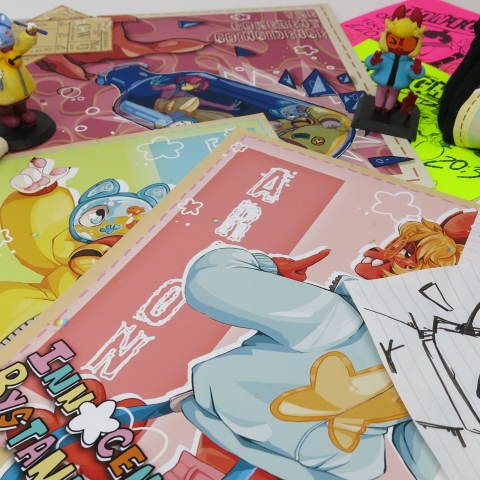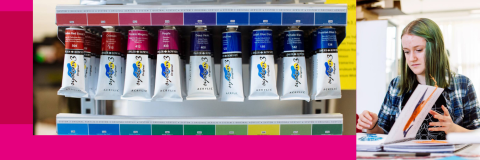
This career guide is designed to help University of Portsmouth students and recent graduates explore job options, key employers, and entry routes into the art and illustration sectors.
The art and illustration industry is a diverse and exciting field with many different career paths to explore. Whilst it can be competitive, building your confidence, developing commercial awareness, and learning how to market yourself effectively can make a big difference to breaking into the industry.
Gaining experience and making connections early on will be crucial to help shape your future career. Being proactive and making the most of opportunities to connect with others in the industry is key.
Explore the Art and Illustration Career Guide
Getting started in art and illustration
Take the first steps to beginning your career in art and illustration.

Gaining experience in art and illustration
Find out how to build your experience in the art and illustration industry while you study.

Finding a job in art and illustration
Explore the different ways you can find employment after you graduate from art and illustration.

Enable University alerts
Turn on notifications for critical updates like closures, safety alerts, and urgent service disruptions.






